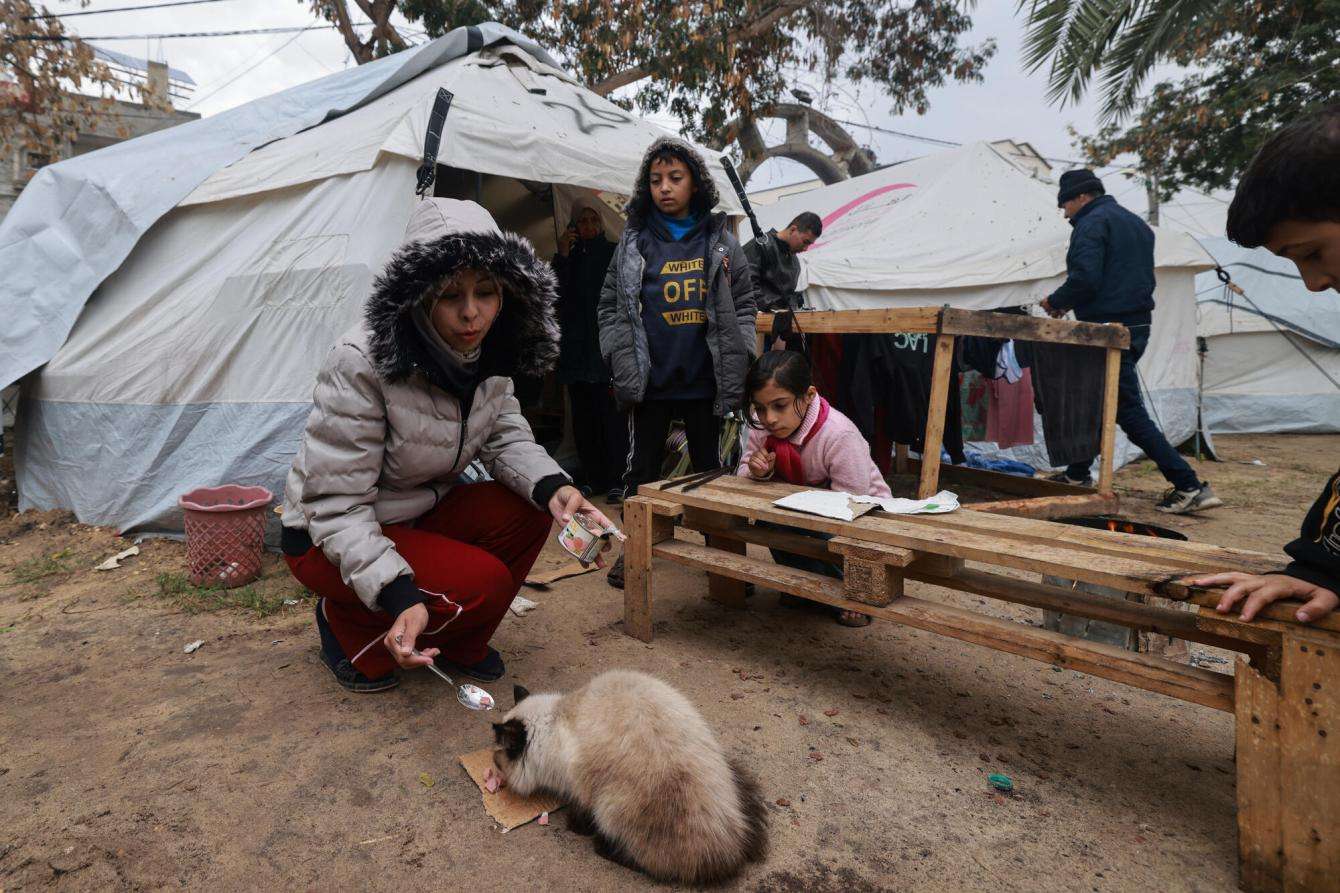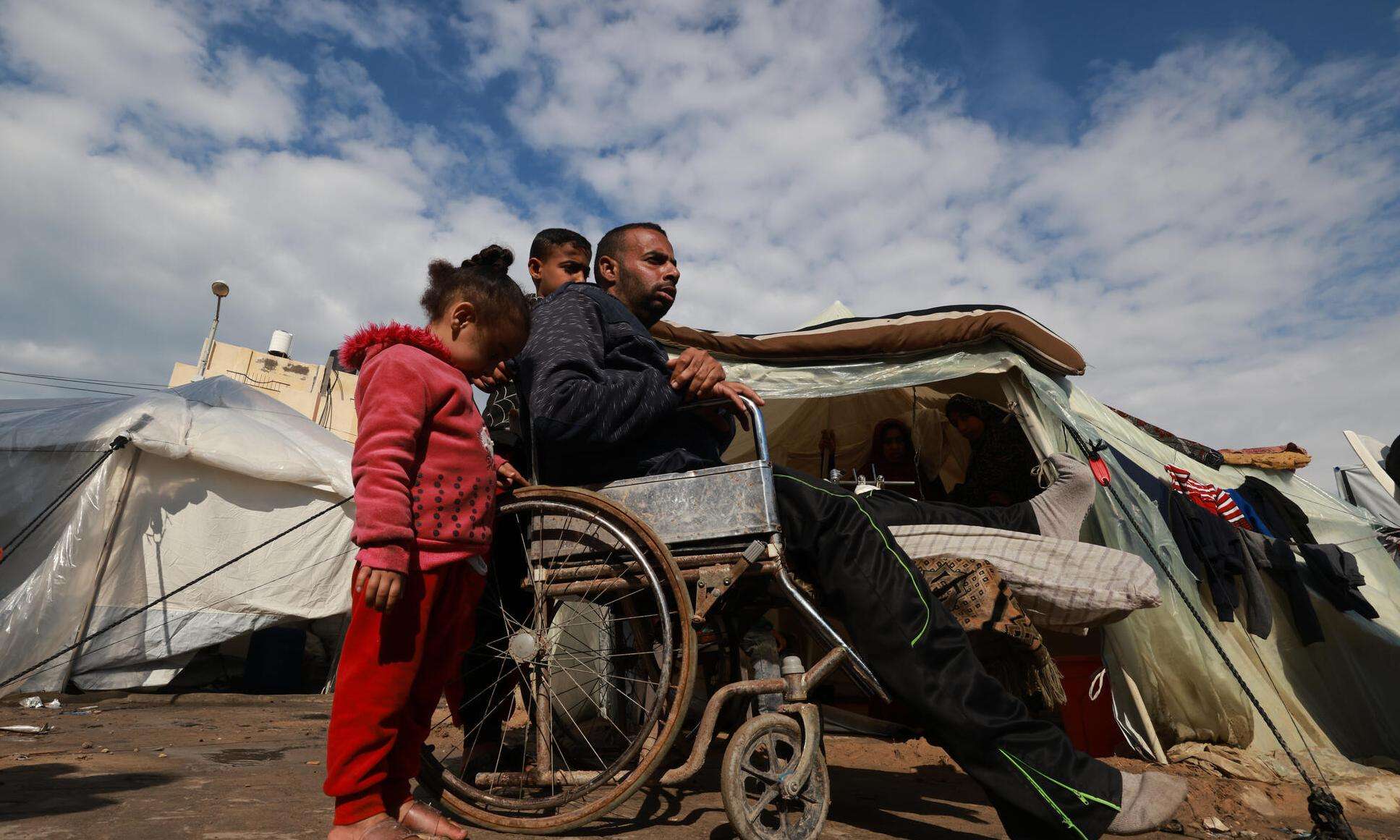Last updated on May 8, 2024
NEW YORK, May 7, 2024 — As thousands of Palestinians are forced to flee eastern Rafah following Israel's recent evacuation orders, the international medical humanitarian organization Doctors Without Borders/Médecins Sans Frontières (MSF) is warning that an escalation of the ongoing military operations in this southern Gazan city would be catastrophic.
Israeli forces sent tanks into Rafah and say they have seized control of the border. Israeli authorities have shut down both the Rafah and Kerem Shalom border crossings, effectively cutting off lifesaving aid deliveries into the Gaza Strip, according to the United Nations. International law requires that parties to conflict allow and facilitate the rapid and unimpeded passage of humanitarian assistance for civilians in need. The US must ensure that its military assistance does not contribute to international humanitarian law violations in Gaza, said MSF.
Over the course of seven months of war, airstrikes, artillery fire, tanks, snipers, and soldiers have pushed Palestinian civilians further and further down the Gaza Strip. Nearly 1.5 million Palestinians now live in this southernmost tip of Gaza—a tiny area they were previously told would be a refuge. People are now being told to evacuate north of Rafah, but there is insufficient shelter and humanitarian assistance capacity there and no measures have been taken to ensure that people can safely evacuate.

Gaza: "Silent killings" continue as Rafah invasion looms
Read moreGiven the escalation, MSF has suspended its activities at Al-Shaboura Clinic until further notice. Though MSF is still running activities at Rafah Indonesian Field Hospital at this stage—where teams have supported the provision of post-operative care—patients have begun to be discharged. MSF will be handing over its activities at Emirati Hospital to the Ministry of Health on May 8 and will relocate its staff to Nasser Hospital to continue to support maternity care in a safer area. This movement was planned before the recent evacuation orders. Additionally, MSF is considering establishing two new field hospitals in Deir Al-Balah in the Middle Area of Gaza.
Avril Benoît, executive director of MSF USA, said today:
"With more than 1.5 million civilians crowded into this sliver of land, an Israeli military escalation threatens to turn Rafah into a graveyard. We are calling for an immediate and sustained ceasefire to prevent more civilian deaths and injuries in Gaza and enable the urgent scale-up of humanitarian aid. The survival of civilians in Gaza depends on it.
"People here have been displaced time and again by the war and are living in tents and makeshift shelters that can barely withstand the elements, let alone bombs and airstrikes. Rafah is the major hub of health care services and humanitarian assistance in the Gaza Strip—and a critical area for the delivery of humanitarian assistance given the crossing. Attacking this area means cutting off the lifelines of people who’ve lost everything. Our humanitarian staff and patients are terrified.
"Israel must immediately halt plans for this ground invasion. A further military escalation in Rafah would be a direct attack on a trapped population. It would crush an already fragile humanitarian response at a time when health and humanitarian needs are soaring.

"As the leading provider of military and financial support to Israel, the US must uphold its own laws and ensure that its military assistance does not contribute to violations of international humanitarian law.
“For seven months, we have witnessed the indiscriminate killing of civilians, attacks on aid workers—including our own staff—the destruction of medical facilities, and the obstruction of lifesaving assistance. We cannot imagine what a further escalation of this conflict would mean for people who have already suffered so much in this war without rules.
"This offensive is going to further decimate the health system, which is barely functioning. As we’ve seen in the north, some hospitals will no longer be accessible and are at high risk of being hit or destroyed. We have begun to discharge patients at Rafah Indonesian Field Hospital—those who can walk—as we also prepare for a possible evacuation. The few field hospitals or alternative structures being built will not be able to cope with an influx of wounded patients on top of regular medical needs such as deliveries and chronic diseases.
"As we have stated repeatedly throughout this conflict: hospitals full of patients must be considered safe places and should not be evacuated in the first place. It is extremely difficult and dangerous to evacuate hospitals and care for the most vulnerable.”
MSF operations in Gaza
Information about how MSF teams throughout Palestine are responding to the ongoing humanitarian catastrophe in Gaza.




